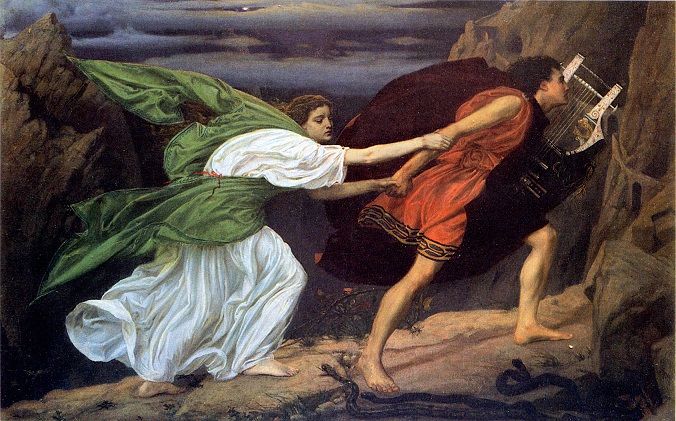.
Too long, too long, my love,
Have we lain out here.
Too long, too long, my love,
Have our ease, our cheer
Fixed us fast, sprawled in cool shade,
With our arms and breasts clasped near,
Too pleased to note that youth and day would fade.
The sun, the sun, my love,
Sinks now in the West.
The sun, the sun, my love,
Knows no pause or rest.
I know well you shall soon miss,
As I, these hours we were blessed,
And time shall yet let us look back on this.
Do you not see, my love,
How the sky glows red?
Do you not see, my love,
How the day is dead?
To the west, fly! Chase the light!
Fly on the last dim ray shed!
Or stay and mourn, blind, drowned in cold, dark Night.
.
.
Adam Sedia (b. 1984) lives in his native Northwest Indiana, with his wife, Ivana, and their children, and practices law as a civil and appellate litigator. In addition to the Society’s publications, his poems and prose works have appeared in The Chained Muse Review, Indiana Voice Journal, and other literary journals. He is also a composer, and his musical works may be heard on his YouTube channel.















Thanks, Adam. Very elegiac, musical, and with potent imagery about the danger the The U.S and its allies are in, chased by the Red menace.
Monosyllabic ? Is each word to be equally stressed ?
I see I need to read your previous essay post.
A lovely lyric on several levels of meaning.
The use of monosyllabic words certainly does make for clipped speech and a plainspoken tone. I’ll try to remember that.
A pretty little ditty.
This classical theme is given a quite a study via monosyllabic words. The impact of a monosyllable or a group of them must be heard against additional effects of the metrical feet they form. Those patterns change in some places in this poem, making for rich imagination for me.
PS – I like String Quartet in C Minor Opus 7 best.
So much I need to know about music as my ideas for organizing poetic sound develops!
This is not only a worthy monosyllabic accomplishment, but an instructive one, offering suggestions on how to make effective use of monosyllables.
Like Tichborne and Brooks in their monosyllabic poems, you make use of a refrain. Eustache Deschamps says the same final word is the minimum for recognizing a line as a refrain, and your refrains are more similar than that. I would say refrains help lengthen a monosyllabic poem without requiring as much effort as would go into creating completely new lines solely from monosyllabic words. Artistry is still required to insure that the refrains make a natural contribution to the thought and flow of the poem. It may be that shorter refrain forms, such as limerick, triolet, and rondine, would be useful. We must acknowledge that Tichborne’s Elegy is close to a ballade (a medium length refrain form), although it makes the French form easier by using a less rigorous rhyme scheme.
Your use of different line lengths helps add variety to a monosyllabic poem, where word lengths contribute less to pleasing variation. However, you use word lengths as well, especially in the poem’s final line, with “mourn, blind, drowned” all of greater quantity (requiring more time to recite) than average. Placement of words and punctuation also help to slow down the line as the poem ends. All of these effects add interest and help avoid clipped or staccato harshness that could arise from monosyllables.
(Bit late to the gate—
Best I could do, mate.)
Thanks, Mr. Sedia, for an interesting (and interestingly controversial, it seems) essay on one–syllable words in poetry. I won’t enter the fray, but merely say that my own thinking about meter, phrase, and period in both English and German poetry is strongly influenced by my involvement with music, especially of the 18th century, when much of the repertory of folk and nursery tunes, with one text or another, arose, strongly influenced by dance tunes. The galant style that emerged as Bach and Handel were culminating the Baroque manner emulates and expands on the characteristics of such folk, nursery, and dance music.
Your essay, and the wonderful examples you supply, prompted my gratitude in the following ditty:
In Short (for Adam Sedia)
Said I, “A thought this is, to set
The mind to work and probe its worth:
I’ll do my best (on no one’s bet)
To think up words of such a girth
As might be claimed to suit a bug.”
Who has a clue how good I am
At this task? Some might give a shrug;
But sadly most won’t give a damn.